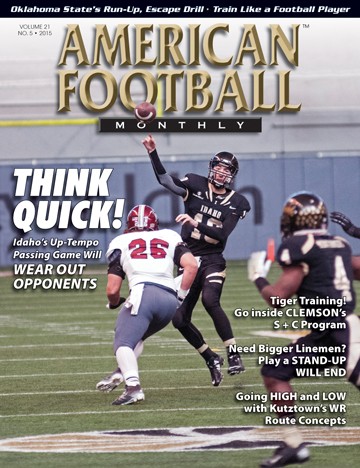Article CategoriesAFM Magazine
|
Coach to Coach: Follow These Four Keys to Become a Better Coach Every Dayby: Jared WoodSport Psychology Consultant © More from this issue As coaches, we often preach to our players, “You will either get better or worse today.” In order to get better every day, players have coaches who have made practice plans for them and provide encouragement, feedback, and inspiration. But if we, as coaches, are going to get better, who and what do we have to help us? The following is an acronym for a process you can use on a daily basis to make sure you are improving in key areas of coaching effectiveness. Follow this plan each day, and you will get better. Build
|
|
|||||||
| HOME |
MAGAZINE |
SUBSCRIBE | ONLINE COLUMNISTS | COACHING VIDEOS |
Copyright 2025, AmericanFootballMonthly.com
All Rights Reserved





